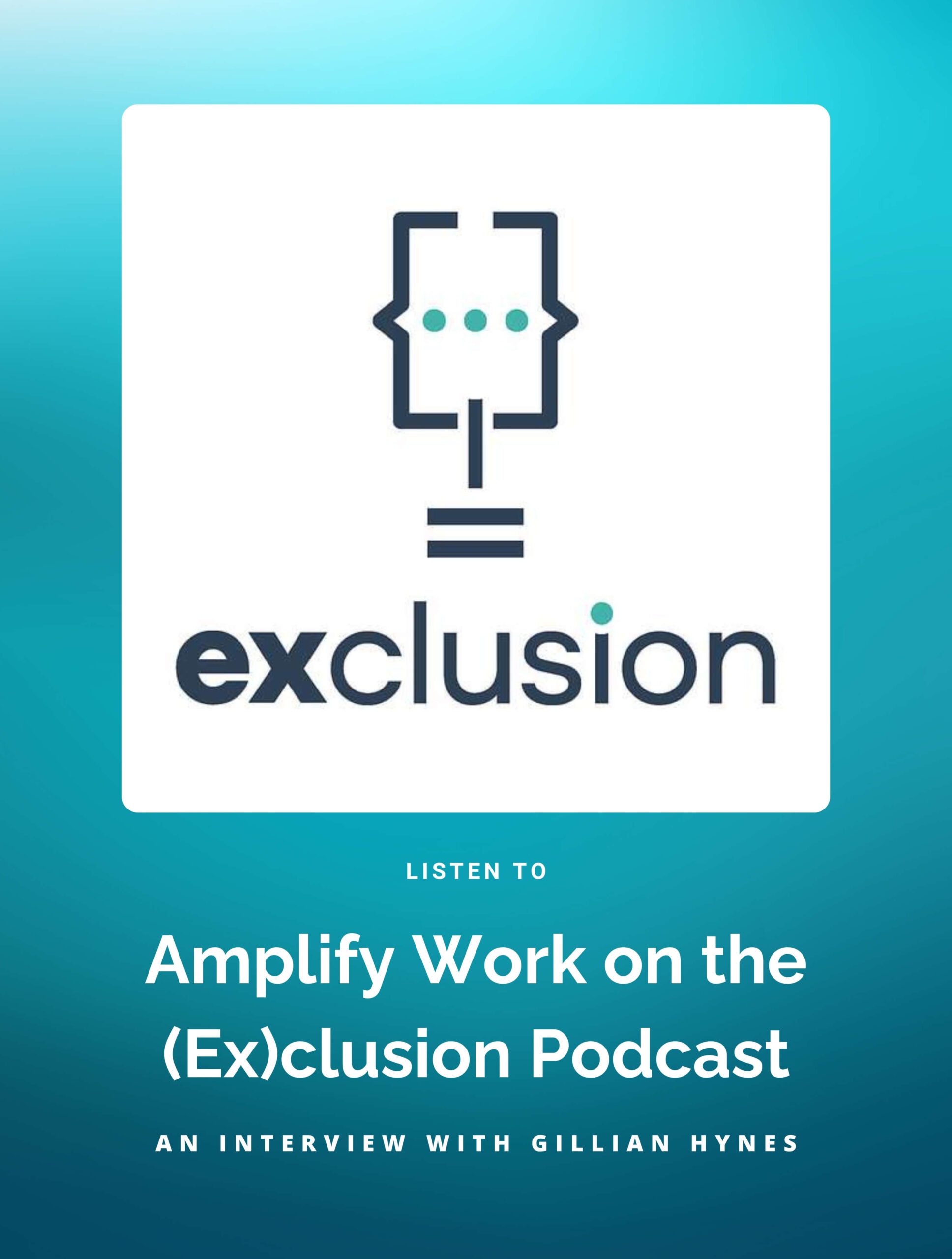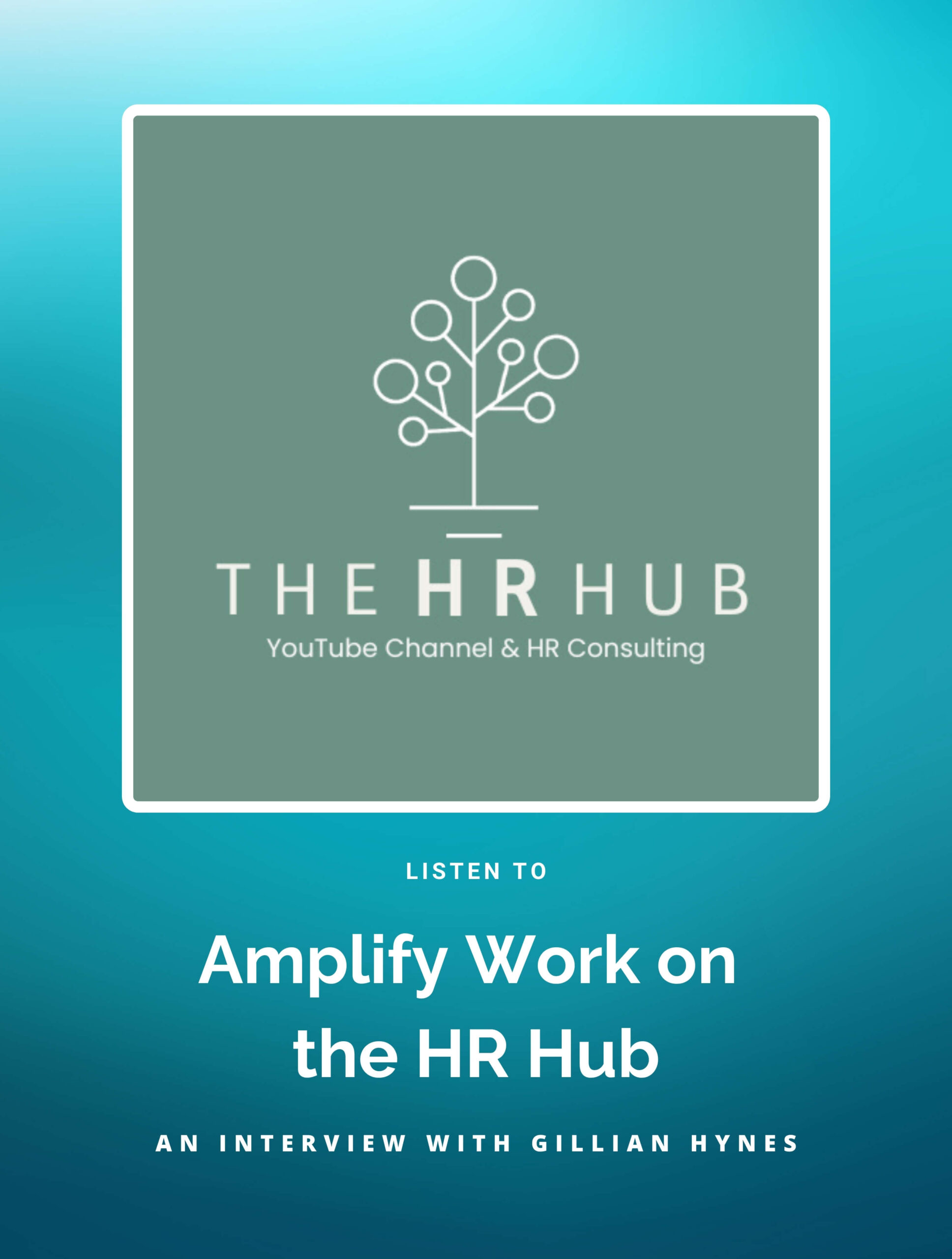
Amplify Work’s founder participated in the Ex(clusion) podcast, which focuses on an exploration of all things Equity, Diversity and Inclusion. During the episode titled ‘Advancing EDI at a Multinational Corporation’, Gillian shared insights for her experience as an HR and EDI leader within multinational organizations, and explored what it takes to advance Equity, Diversity and Inclusion (EDI) within a global context. The discussion centered around how organizations need to integrate EDI into leadership development and people talent strategies, advancing people outcomes and growth.
EDI as a System
Gillian highlighted that an important part of this work in organizations is understanding the barriers and challenges that are blocking people from equity deserving groups from advancing into leadership positions, along with moving from diversity into inclusion and equity. Gillian states ‘diversity is something people can intuitively get behind in organizations because it is quantitative, and you can set goals and identify areas of the organization where you want to increase diverse representation’. However, she acknowledges that organizations need to evolve beyond diversity into EDI, which includes integrating EDI into leadership succession plans, diversity strategy reviews, policies and employee feedback systems.
Global Strategy Meets Local Context
Advancing EDI in a multinational organization presents unique challenges, as organizations have complex footprints in multiple countries which leads to cultural, legislation and geopolitical complexity that can challenge EDI. In a multinational organization, EDI practitioners need to consider the global priorities of people, and then layer on the specific local requirements or considerations. A one-country fits all approach doesn’t work and EDI practices have to be tailored to meet the cultural and regional differences across various markets, while maintaining a global strategy.
Leaders as Champions
It is critical to have visible leadership support of EDI programs in organizations, for leaders to actively engage in EDI work, which makes them champions versus passive supporters. Support Employee Resource Groups (ERGs) with active sponsorship from leaders and a dedicated budget to foster and maintain employee grassroots passion. Leaders also have to actively promote EDI within their business units and to model inclusive behaviours. To do this, organizations need to equip their leaders with the tools and knowledge to be champions of EDI.
Key Takeaways for EDI Practitioners, EDI Professionals and Leaders
1. It’s a journey, not a destination: EDI in a multinational is a long journey, one that is complex and can move slowly. Within that journey, a good place to start is with CEO support and passion.
2. Create healthy EDI systems: it’s not one thing that will advance EDI, and instead, it’s about looking at all the ways we can create strong, sustainable and healthy EDI systems in organizations. This includes attraction and recruitment, advancement, policies, ERGs, being a positive community partner, fostering relationships with identity groups and more.
3. Start with the D to advance E&I: in some organizations, a good place to start is with the diversity lens and progress to integrating EDI into culture through personal and collective difficult conversations.
Did you enjoy this article?
Click here to listen to the full episode.
Amplifying People, Transforming Workplaces
We’re the team that partners with you to create workplaces that center people.
Every workplace is one-of-a-kind, and what ties them all together is that people are at the heart of every organization. We are a team of diverse HR, EDI and Reconciliation Practitioners who partner with organizations like yours to create customized, people-focused solutions that foster inclusion, build stronger teams, and create positive impact in the workplace.
Partnering with businesses across Canada, we offer human-centric solutions that drive business growth. Whether it’s through HR fractional or consulting services, strategic EDI plans, or Reconciliation Action Plans and Indigenous Community Engagement, our solutions are customized to meet your organizational goals. We’ll be with you every step of the way to create real, lasting change.
Our team has advanced HR, EDI and Reconciliation Practitioner skills from across a wide range of industries, along with diverse lived experiences. We hold Chartered Professional in Human Resources (CPHR) and International Association for Public Participation (IAP2) designations, ensuring wise practices and leading results.
We offer
Human-Centric Solutions
that drive business growth
Learn about our areas of practice
connect with us on linkedin
Fractional HR Services
On-going, strategic HR Leadership, tailored to your organization’s unique needs, without the full-time commitment.
Learn more
HR Consulting
Project-based HR solutions designed to address your organizational people needs and strategies.
Learn more
Learning and Development
Interactive and impactful learning experiences designed to share knowledge, build skills and inspire change in HR, EDI and Reconciliation practices.
Learn more
Reconciliation and Indigenous Engagement Consulting
Support in fostering respectful relationships with Indigenous communities through authentic community engagement and Reconciliation Action Plan (RAP) development.
Learn more
EDI Consulting
Expert guidance to create and implement equity, diversity and inclusion strategies that advances positive change in your workplace.
Learn more
Keynote and Speaking Sessions
Engaging speaking sessions designed specifically for your audience that spark dialogue on topics in HR, EDI and Reconciliation.
Learn more
Gillian on your team makes your whole team better.
Gillian’s excellence in HR shows up in every team, every organization, every meeting everywhere.
Kelley Lang
I Was Thoroughly Impressed.
Gillian was effective in understanding the First Nations’ needs and she was dedicated to delivering high-quality results.
Desiree Gervais
Gillian Hynes' work has been truly transformative.
Her generosity with her time and guidance in seeking the right perspectives were invaluable.
Nancy Cherniwchan
Gillian is an exceptional visionary leader.
Gillian’s fierce desire to see DEIB a reality gives her clients an edge to be ahead of the curve. I highly recommend Gillian.
Angel Sansregrett
It is with gratitude, respect and reciprocity that we acknowledge Amplify Work was founded in Moh’Kinstsis, Wîcîspa and Guts’ists’i, otherwise known as Calgary to settlers. We recognize the Indigenous Peoples, cultures, homes and oral teachings of the Treaty 7 signatories including the Blackfoot Confederacy, consisting of the Siksika, Piikani and Kainai nations, the Îethka Nakoda Nation, consisting of the Chiniki, Bearspaw and Goodstoney Bands, and the Tsuut’ina Nation. This is also part of the historic Northwest Métis homeland and to the Otipemisiwak Métis Government, Métis Nation District 5 and 6. We acknowledge as a remote team, we may work across many Traditional Territories, and we honour all Territories and Treaties as Treaty People in Canada.

Don't just take our word for it.
Amplify Work